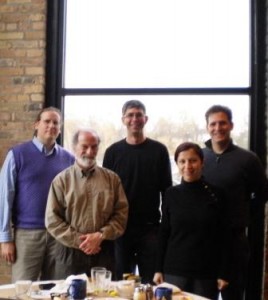In his latest Revisionist History podcast, Malcolm Gladwell gives us some food for thought about where we put our resources. He claims that small liberal arts that develop gourmet-level dining services are doing so at the expense of bringing in low-income students. To develop his argument, he compares two elite schools from the northeast, characterizing the situation thusly:
They compete for the same students. Both have long traditions of academic excellence. But one of those schools is trying hard to close the gap between rich and poor in American society—and paying a high price for its effort. The other is making that problem worse—and reaping rewards as a result.
His logic is pretty straight forward: Schools have a budget constraint, and at the margin they can spend an additional dollar on financial aid or on campus amenities. A school that invests in campus amenities will draw more students willing to pay a premium price, whereas a school that skimps (relatively speaking) on amenities in favor of financial aid will be at a relative disadvantage in two ways: First, students generally prefer high-quality amenities to low-quality amenities. Second, it generates less revenue per student and therefore fewer resources to put into financial aid or campus amenities.
Malcolm Gladwell is an influential writer with best sellers to his credit such as Outliers and The Tipping Point, as well as about a million New Yorker articles, so this pieces is certain to make waves. That he calls the investment in high-end dining services “a moral problem” and implores students not to go to schools with ridiculously good food pretty much ensures people will be up in arms about this.
This is also relevant from our perch here at a small liberal arts school with our own financial decisions to make. I was more amused than convinced by the thesis when I first read the abstract, but after looking at the numbers and listening to Gladwell, I am more sympathetic (scroll down the Revisionist History page for the photo of a banana chocolate chip waffles with the school logo emblazoned in the center). Though, I guess that’s why Gladwell is such a popular figure: he makes an interesting claim, tells a good story, and makes a good case.
As an aside, I think I speak for most people who attended a residential campus prior to 2000 when I say that the food even at campuses that “skimp” on quality is ridiculously good compared to what we ate (though I did love the Monte Cristo sandwich on Thursdays).
You can read more about it at the always lively Inside Higher Ed website.
Addendum: It’s probably worth adding that it’s still okay to complain about food at your school. You probably pay a lot of money for dining services, and with that, you expect certain levels of quality, variety, and availability.
A quick peek reveals that the average U.S. household (a.k.a., consumer unit) spends about $6,800 annually on food compared with college meal plans that run $2000-$3500 per semester.

